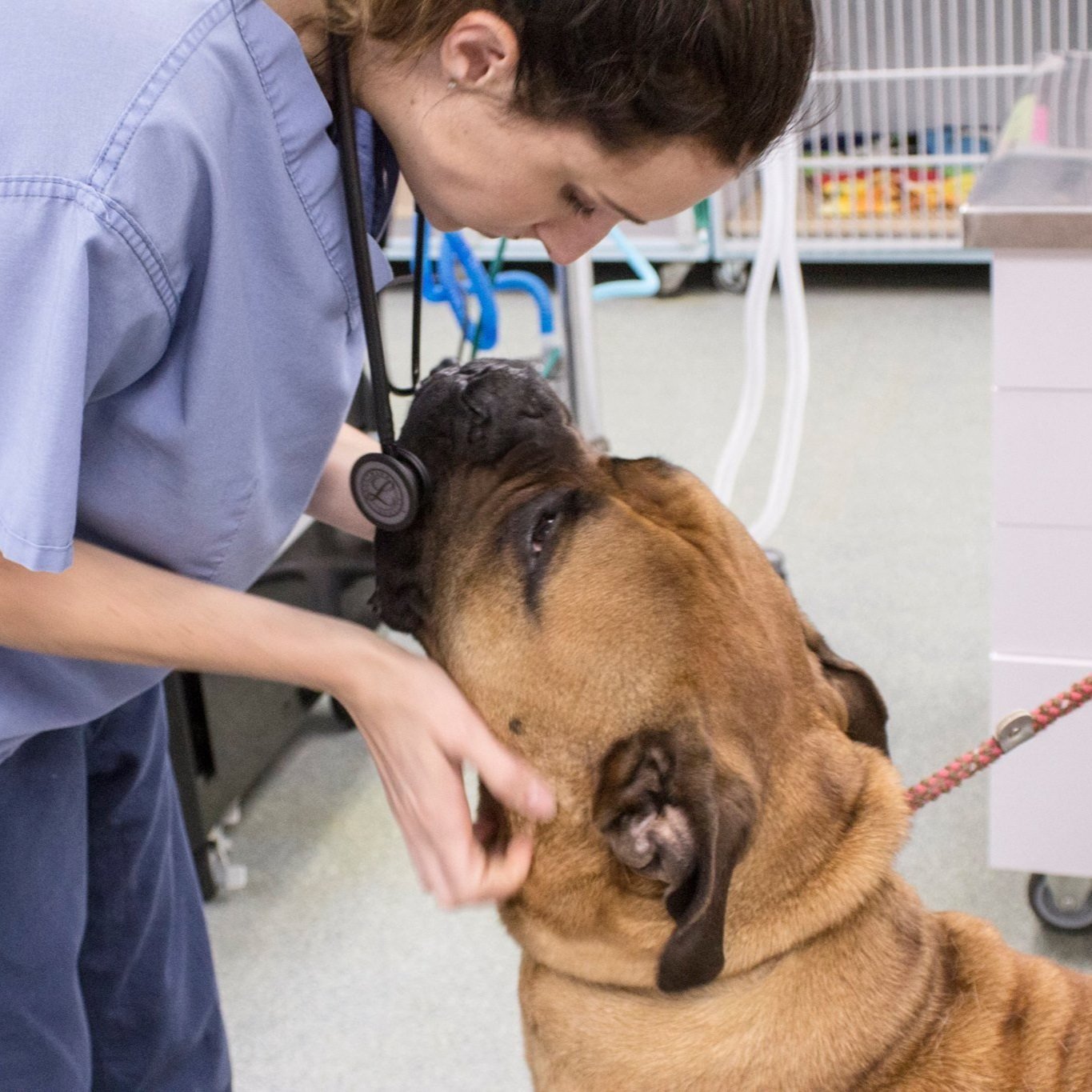Your Pet’s Health is Our Priority.
Why are Annual Wellness Exams So Important?
Routine wellness exams help your pets live happy, healthy lives. Annual or biannual exams enable us to catch emerging health problems in their earliest stages. Many conditions, when treated early, can be managed through medications or simple lifestyle changes. Our goal is to help you help your pet live their healthiest life and prevent any potential medical conditions.
Dr. Rogers will examine your pet from the tip of their nose to the end of their tail, and based on any findings, will make recommendations for your pet’s care which may include additional diagnostic testing. Routine testing of younger, apparently healthy pets allows us to establish a baseline of what is normal for that individual pet. It may also enable us to identify any hidden illnesses. As your pet becomes a senior, they benefit from routine screening for species, or breed-specific diseases, similar to how your human doctor may screen you for any hereditary or age-related illnesses.
During your pet’s wellness exam, we will review your pet’s history, and discuss their lifestyle and risk factors to help decide what vaccines and preventions are important for your pet.
Annual Vaccinations
Vaccinations are an important aspect of keeping your pet healthy and happy. Contagious diseases are present within our pet population. Many of these diseases are life-threatening not only to your pet but to humans as well. Vaccination is the most reliable method of disease prevention and poses few risks. We are happy to discuss your pet’s lifestyle and risk factors to decide what vaccines are important for each individual pet. We offer one-year and three-year vaccines, this way your pet remains fully protected with fewer injections each year.
Puppy and Kitten Vaccine Series
-

Puppies
Vaccination is a crucial component of preventive medicine in dogs. Vaccinations are given to kick-start your puppy’s immune system against infection before they are exposed to a disease. Your puppy’s vaccine series should start between 6-8 weeks old, and they will receive booster vaccines every 2-3 weeks until their vaccine series is completed, usually around 16 weeks old.
Every dog does not need every vaccine - While some vaccines, like rabies, are considered “core” because of the risk to humans, others such as Lyme or Influenza may be necessary for your pet’s lifestyle. We will ask you questions about your dog’s lifestyle, environment, and travel to help tailor the perfect vaccination plan for them.
-

Kittens
Vaccinations are part of a preventive health plan for all kittens and cats. However, which vaccines your pet needs vary based on her life stage, home environment, and how (and with whom) she spends her time. Your kitten’s vaccine series should start between 6-8 weeks old, and they will receive booster vaccines every 2-3 weeks until their vaccine series is completed, usually around 16 weeks old.
While core vaccines such as the rabies vaccine are recommended for all cats, other vaccines such as feline leukemia are given selectively based on lifestyle. We will discuss your cat’s risk factors to determine any appropriate non-core vaccines.

